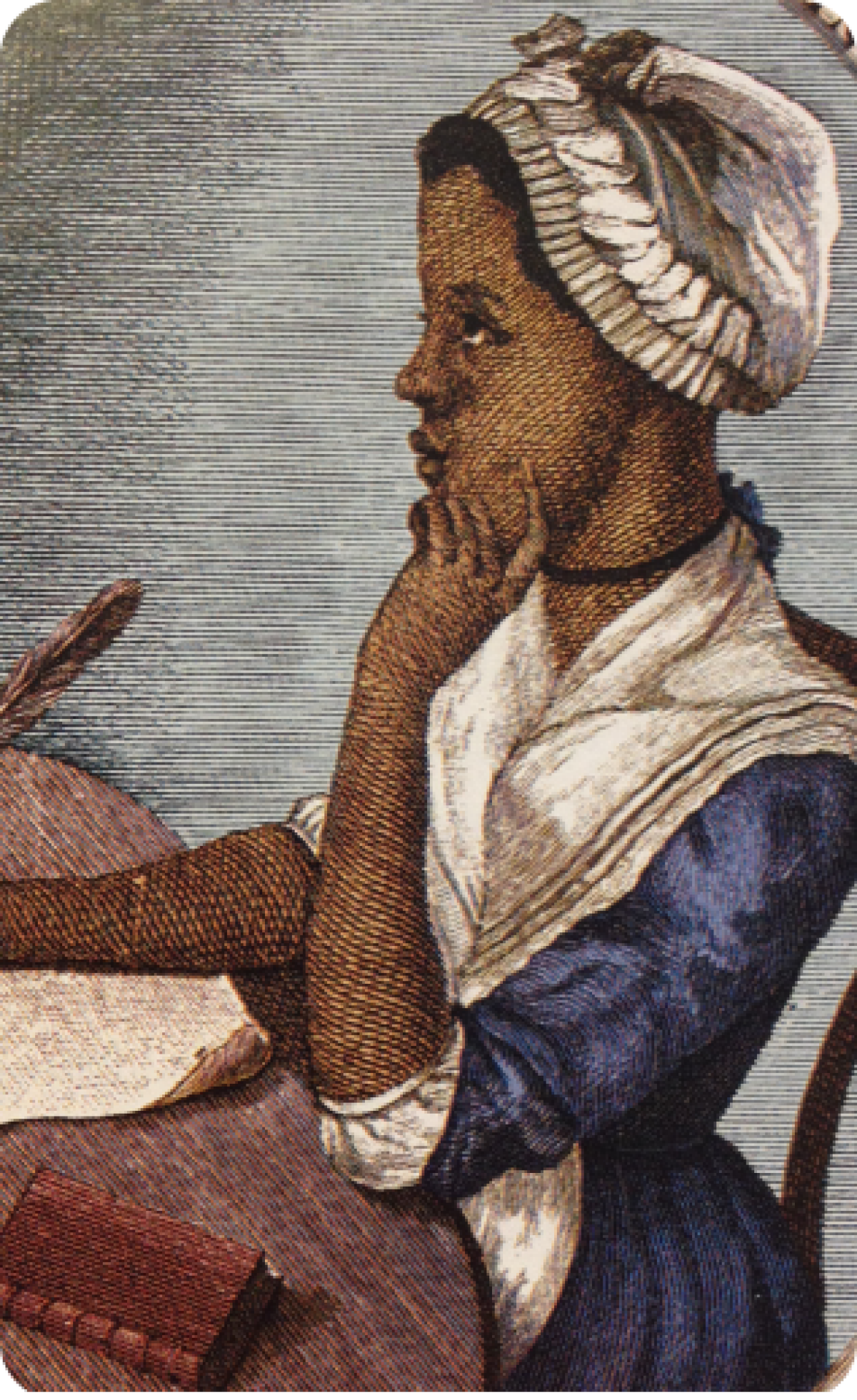Wheatley Phillis
Phillis Wheatley (1753 – December 5, 1784), was the first African American female writer to be published in the United States. Her book Poems on Various Subjects was published in 1773, two years before the American Revolutionary War began, and is seen as one of the first examples of African American literature.
Born in what is modern day Senegal or Gambia, she was captured and sold into slavery at the age of 8, Wheatley was brought to America in ca. 1760 where John and Susannah Wheatley of Boston, Massachusetts purchased her and where she converted to the Christian faith. The family of merchants made sure that the intellectually gifted girl received a good education, including study of Latin, Greek, mythology and history. She quickly mastered the English language. She published her first poem in 1767 at age 13 in the Newport Mercury.
Phillis published her first poem in the Newport, Rhode Island, "Mercury" on December 21, 1767. In 1770 she wrote a poetic tribute on the death of the Calvinist George Whitefield that received widespread acclaim in Boston. Her poetry was praised by many of the leading figures of the American Revolution, including George Washington, who referred to her "great poetical Genius" and personally thanked her for a poem she wrote in his honor. This praise was not universal. For example, Thomas Jefferson was among the harshest critics of her poetry, writing "The heroes of the Dunciad are to her, as Hercules to the author of that poem."
Phillis' poetry overwhelmingly revolves around Christian themes, with many poems dedicated to famous personalities. Over one-third consist of elegies, the remainder being on religious, classical and abstract themes. She rarely mentioned her own situation in her poems. One of the few which refers to slavery is "On being brought from Africa to America":
`Twas mercy brought me from my Pagan land,
Taught my benighted soul to understand
That there's a God, that there's a Saviour too:
Once I redemption neither sought nor knew.
Some view our sable race with scornful eye,
"Their colour is a diabolic die."
Remember, Christians, Negroes, black as Cain,
May be refin'd, and join th' angelic train.´
Because many white people found it hard to believe that a black woman could be so intelligent as to write poetry, in 1772 Wheatley had to defend her literary ability in court. She was examined by a group of Boston luminaries including John Erving, Reverend Charles Chauncey, John Hancock, Thomas Hutchinson, the governor of Massachusetts, and his Lieutenant Governor Andrew Oliver. They concluded that she had in fact written the poems ascribed to her and signed an attestation which was published in the preface to her book Poems on Various Subjects, Religious and Moral published in Aldgate, London in 1773. The book was published in London because publishers in Boston had refused to publish the text. Phillis and her master's son, Nathanial Wheatley, went to London, where Selina, Countess of Huntingdon and the Earl of Dartmouth helped with the publication.
Wheatly is credited with simultaneously founding two literary genres: Black American literature and Black Woman literature.
In 1778, African American poet Jupiter Hammon wrote an ode to Wheatley. Hammon never mentions himself in the poem, but it appears that in choosing Wheatley as a subject, he was acknowledging their common bond.
After the death of John and Susannah Wheatley, Phillis married a free black grocer named John Peters. After her husband left her, she did domestic work as a servant. Neither hard work nor artistic ability were to bring her prosperity, and she died young at age 31 in poverty, her third child only a few hours after her. A second volume of poetry she was working on remained lost.
Share:









